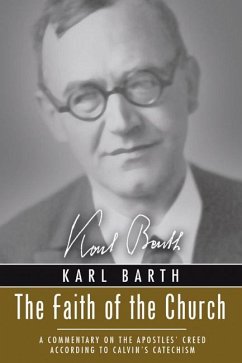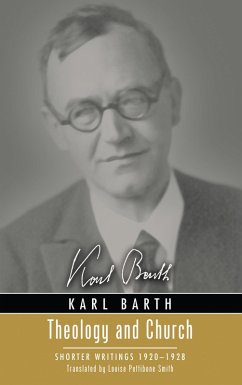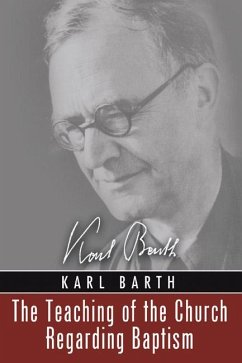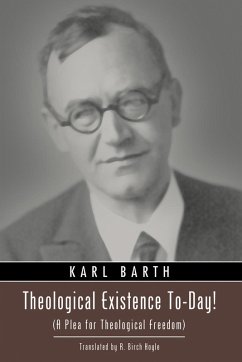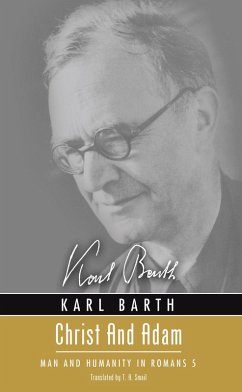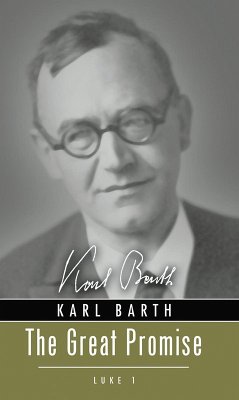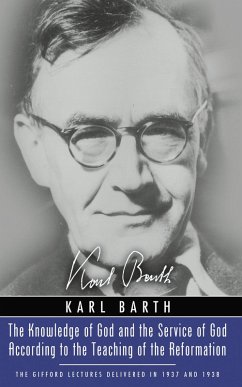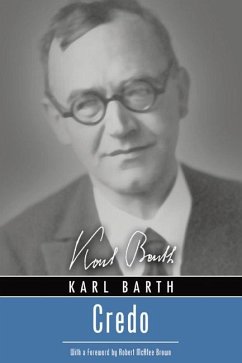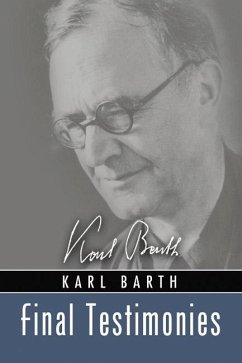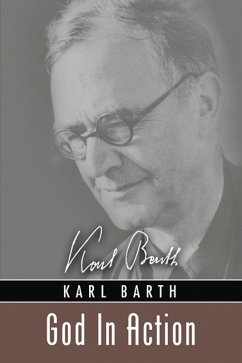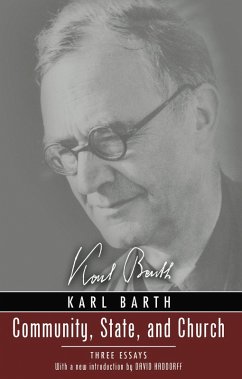
Community, State, and Church (eBook, ePUB)
Three Essays by Karl Barth With a New Introduction by David Haddorff

PAYBACK Punkte
7 °P sammeln!
Karl Barth was the master theologian of our age. Whenever men in the past generation have reflected deeply on the ultimate problems of life and faith, they have done so in a way that bears the mark of the intellectual revolution let loose by this Swiss thinker. But his life was not simply one of quiet reflection and scholarship. He was obliged to do his thinking and writing in one of the stormiest periods of history, and he always attempted to speak to the problems and concerns of the time. In June 1933 he emerged as the theologian of the Confessional movement, which was attempting to preserve...
Karl Barth was the master theologian of our age. Whenever men in the past generation have reflected deeply on the ultimate problems of life and faith, they have done so in a way that bears the mark of the intellectual revolution let loose by this Swiss thinker. But his life was not simply one of quiet reflection and scholarship. He was obliged to do his thinking and writing in one of the stormiest periods of history, and he always attempted to speak to the problems and concerns of the time. In June 1933 he emerged as the theologian of the Confessional movement, which was attempting to preserve the integrity of the Evangelical Church in Germany against corruption from within and terror from without. His leadership in this struggle against Nazism also made it necessary for him to say something about the totalitarianism that the Soviet power was clamping down upon a large part of Europe. In this indirect way, a Barthian social philosophy emerged, and this theologian, who abjured apologetics and desired nothing but to expound the Word of God, was compelled by circumstances to propound views on society and the state that make him one of the most influential social thinkers of our time. David Haddorff is Associate Professor of Theology and Religious Studies at St. John's University, New York. He is the author of several articles and reviews, and the book: Dependence and Freedom: The Moral Thought of Horace Bushnell (1994). Table of Contents: Introduction by David Haddorff - Karl Barth's Theological Politics 1 Gospel and Law 71 Church and State 101 The Christian Community and the Civil Community 149 Bibliography 191
Dieser Download kann aus rechtlichen Gründen nur mit Rechnungsadresse in A, D ausgeliefert werden.




